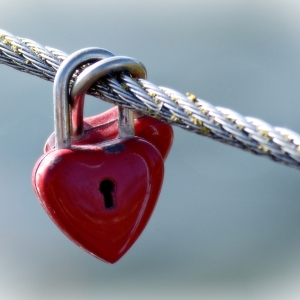
If Thieves Steal Stuff, What Does Stuff Steal?
(6 minute read)
She lives alone. It is a matchless place of exceptional ocean views. The playground of the dolphins and manatee should be full of pleasure; rather it is full of treasure. That is what she calls her possessions.
She is forlorn, restless, and disconnected from reality. Clothes she does not wear consume her bed in towering piles. She sleeps on the couch. A lone visitor sits on a small stool to eat for there is no room to take a seat at the table together. She dare not invite others, for there is great shame in the state of her home.
Her stuff is her obsession. Afraid she doesn’t have enough. Afraid she will lose what she has. Afraid someone will steal it from her. Unaware the thief has her surrounded.
We all know someone like her. Sometimes we even see her in the mirror.
No one wants their stuff stolen. This is natural and understood. We have alarm systems installed to protect our stuff. We buy insurance to replace our damaged, lost, or stolen stuff.
We go to great lengths to be sure our stuff isn’t robbed. Yet, have you ever considered what your stuff could be stealing from you on a daily basis?
If we aren’t careful stuff can steal our:
1. Peace of mind. Have you ever lost sleep worrying about your mortgage? How about how you were going to pay for the furniture you bought on credit? Have you ever wished you had bought the used car you had cash for instead of financing a new one? Maybe you are getting older and starting to wonder what you are going to do with your stuff.
Perhaps you have your own stuff under control but have felt the burden of losing a loved one who does not. It is no laughing matter to be left behind to deal with a mountain of stuff. Grief is hard enough without adding the stress of excessive stuff.
Perhaps stuff stresses you due to a lack of contentment. You can afford what you have and your loved ones are healthy yet you still find yourself stressed wanting more. You can never find satisfaction in what you have.
2. Financial resources. There is little you can buy that will gain value over time. Depreciation is one economical phenomenon we would rather forget. Such things as clothes, cars, furniture and the suchlike lose value over time. There are some things that bring value beyond the monetary. For example, I just spent a little over $100 on supplies to build a fire pit. I don’t expect to ever sell this fire pit or make money off of it, but I do look forward to building some relationships while sitting around it. Overspending on stuff that brings no value monetary or otherwise will drain your finances, leaving little left for what you love most. Or worse yet, what you need.
This brings me back to the lady at the beginning of this post. I could give many examples, but for sake of space I will say that she has spent a great deal of money on Christmas stocking hangers. She has well over 20 of them. Their boxes never opened. Remember, she lives alone. Now, diagnosed with Alzheimer’s disease, she could use the money. The stocking hangers are just as useless to her as the day she bought them.
Another way stuff steals our financial resources is in what I will call repetitive purchasing. Have you ever bought something you knew you already had just because you couldn’t find it? The next thing you know you are the not so proud owner of 30 pair of scissors. An excellent, yet sobering sign you have too much clutter, resulting in a poor use of financial resources.
3. Relationships. There are at least two ways stuff steals from relationships. One is when people seek to get one up on others with their stuff. Your kid’s birthday party must be one notch more extravagant than hers. Your house needs to be just a touch bigger. Your car must be newer and a higher model. Before you know it your relationships become about stuff. In a sort of twisted competition, you are robbed of any meaningful friendship.
A second way stuff steals from relationships is it keeps us from doing things we love with others. How can this be? It is an effect of clutter. Most of us have something we enjoy doing just for the fun of it; a hobby if you will. Most hobbies need some amount of stuff. Maybe it is a boat, some woodworking tools, or a sewing machine you have. Imagine whatever it is you have of this sort. Now ask yourself, is clutter hindering me from using these items for their intended pleasure? Can I access my boat or is it full of other stuff I would have to remove first? Is it trapped by other clutter so that I cannot access the hitch to take it to the lake? What about my woodworking shop or my sewing room? Are these things even possible to use or are they buried in clutter? How much enjoyable time has this excess stuff robbed you of?
4. Time. There are several ways stuff can steal your time. When we have clutter or unorganized stuff we can waste a lot of time looking for things. How much time have you spent this week looking for your keys, wallet, or phone? Others of us lose precious time shopping for more stuff. This is perhaps the ultimate irony, we spend time shopping for stuff and then the stuff just takes more time. It is a vicious cycle indeed. Stuff takes time to clean. Stuff takes time to maintain. And yes, it even takes time to get rid of stuff.
5. Charitableness. For most of us, money is a limited resource. So, any money spent on stuff is less money available to help someone in need. There are no set rules for how much charity a person should have. If you find yourself wanting to help but not having any resources left on a regular basis your stuff just might be stealing your ability to serve others.
The more I examine my own life and those around me the more clear it becomes that my biggest concern needs to be what my stuff is stealing from me rather than who might steal my stuff. Peace of mind, financial resources, relationships, time, and charitableness are all at stake.
“Thieves steal stuff. Stuff steals life.” – Jamie Cearley, PhD
Like what you just read?
Subscribe to Simple living. Rich life.
or go ahead and read more now from the Archive .


2 Comments
Dr. Cearley
Yep. That pretty much sums it up doesn’t it? The irony is we would all say we are opposed to slavery yet we voluntarily enslave ourselves with this lifestyle. We even crave it and will work ourselves to death to obtain it. Nuts. Just nuts.
Donna
We become a slave to our stuff.